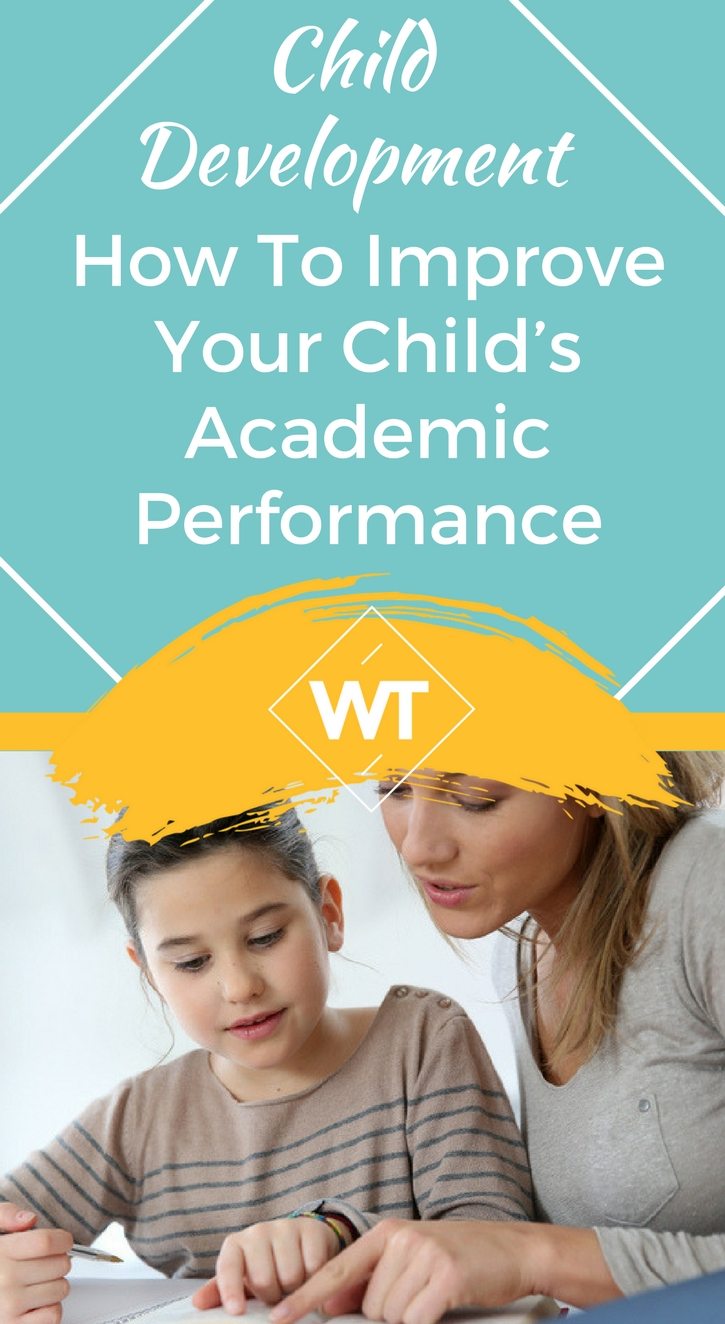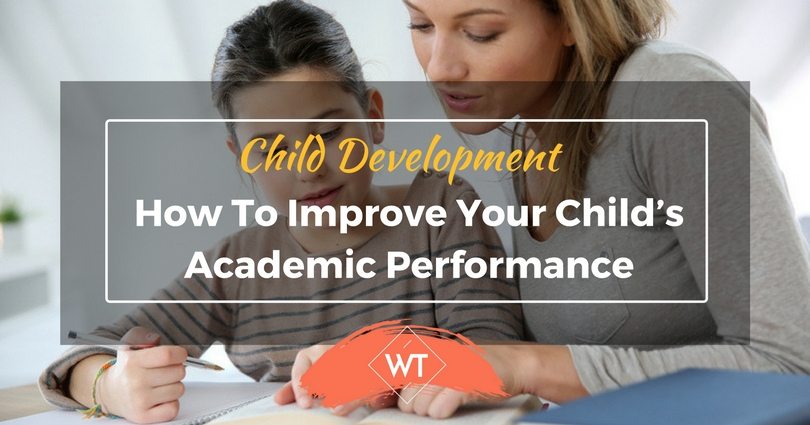Child Development – How to Improve your Child’s Academic Performance

What makes one child better in scholastic ability than another? All of us want to help our child do well in school. The academic performance of children has every parent living on the edge.
Here are some of the ways we can actually make a positive impact on our child’s academic performance which can lead his way into a bright future.
Memory Power
One of the most important things that impact a child’s academic performance in school is his memory—the ability to retain and recall information. The sharper a child’s memory, the better he will fare in studies since he will be able to retain as well as recall whatever he learns or reads.
Here is a great practical tip from brain researchers that can help your child learn effectively.
Encourage him to break up large pieces of information into organized, smaller sections so he does not experience an information overload at any point.
When large pieces of information are broken up into smaller chunks, they seem a lot more manageable than they would have otherwise and this makes understanding as well as memorizing them a lot easier.
For the Love of Reading
Inculcating the habit of reading books is one of the best things you can do for your child’s academic performance. Besides boosting his language skills and general knowledge levels, reading can also develop your child’s imagination and creativity. Just cuddle up with a book with your child for a few minutes everyday and enjoy your lovely family reading time together!
Reading is key to a child’s success in school, and it begins with their first teachers: their parents.
Nutrition and Good Health
Beyond the good old almonds and milk, make sure your child eats the right kind of wholesome diet he needs to develop his body well as nutrition has a concrete effect on your child’s brain’s abilities. Good health is not just good physical health though. You will need to focus on your child’s mental as well as emotional health as well to ensure that he is healthy in a holistic sort of way. Health is after all, a holistic concept and not just the absence of disease.
Creating a Conducive Learning Environment at Home
Does the television viewing time in your home last from 4 PM till 10 PM or do relatives and friends frequent your home regularly? If everyone at home enjoys watching TV for long hours, it can be tempting and distracting for the child as well. While everyone likes entertainment and social interaction in their lives, it is important for you to decide whether your home and lifestyle enables your child to study well or does it interfere with his studies.
Humans are sensitive beings who are affected by the environment they live in and it is your duty as a parent to create a good learning environment for your child in which he learns in a natural and comfortable sort of way.
Neetu was a bright young girl who grew up in a typical middle-class home with working parents.
Social by nature, her parents enjoyed a great friend circle and their home was also the chosen hub for get-togethers by relatives from time to time. This made their home atmosphere lively and Neetu developed great social skills over time.
But it also had an adverse impact on her scholastic performance. Bright by nature, she could have done very well in school but she never found the right kind of atmosphere at home since her mother used to switch the TV on every evening and watch one serial after another till bedtime. Even dinner was eaten over TV soaps which tempted her away from books and studies.
Conclusion
These are some of the ways you can help your child and contribute to his academic performance like a facilitator. A parent has a great role to play which impacts every aspect of a child’s life and academic success is no exception. Parents have an important role to play in improving the child’s overall performance.
Parents and teachers together have to work towards the child’s academic performance. They need to have an open two-way communication between them about the child’s well-being.
A child should be made to feel that he is valuable and gifted by God, no matter what his report card says. Parents need to help their children succeed and the best way to do that is by striking a balance. They should be involved—but not overly involved. They should set limits—but allow freedom. They should encourage their kids to excel—but not expect perfection!
Be your child’s biggest cheerleader!









Leave a Reply